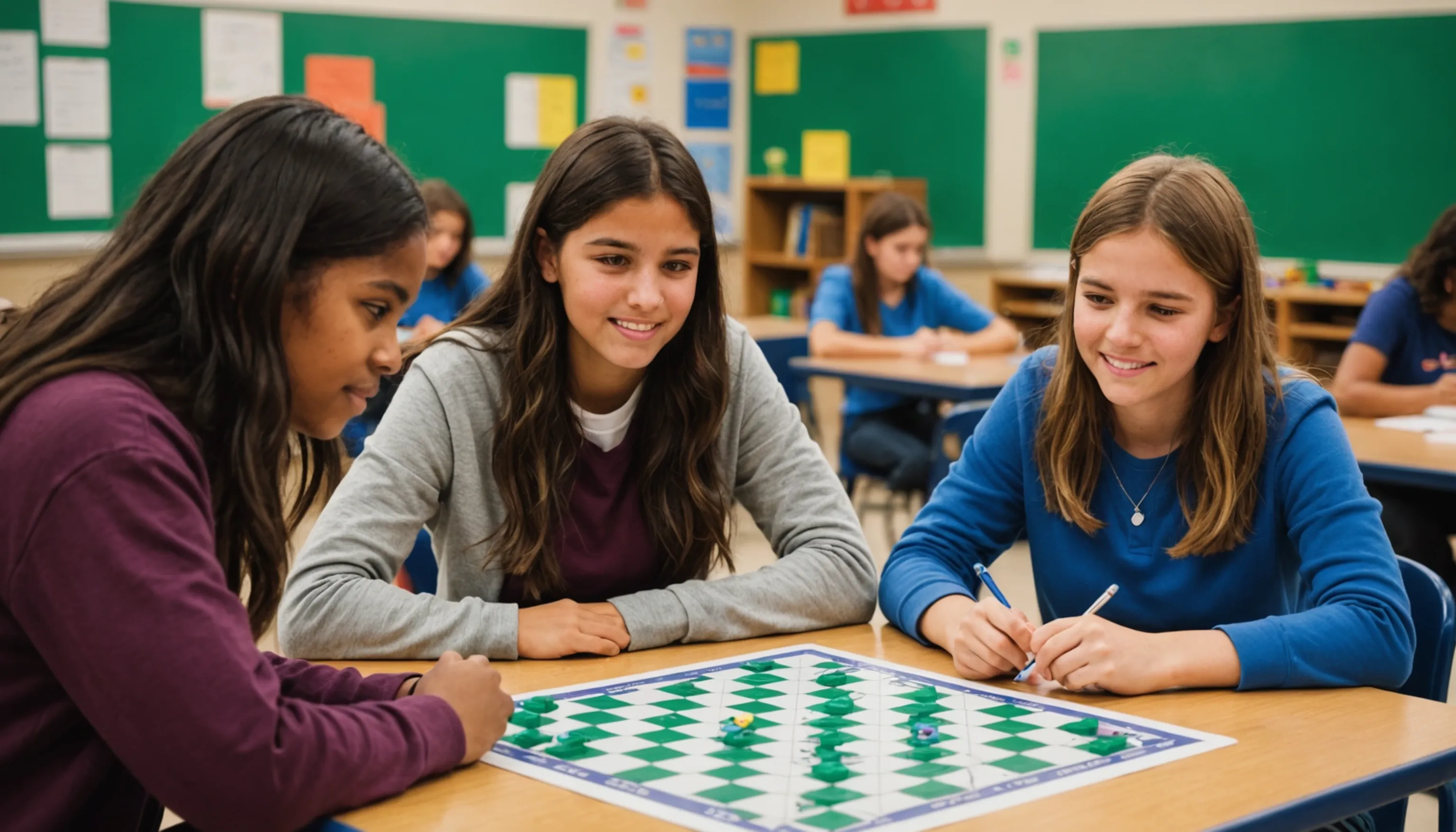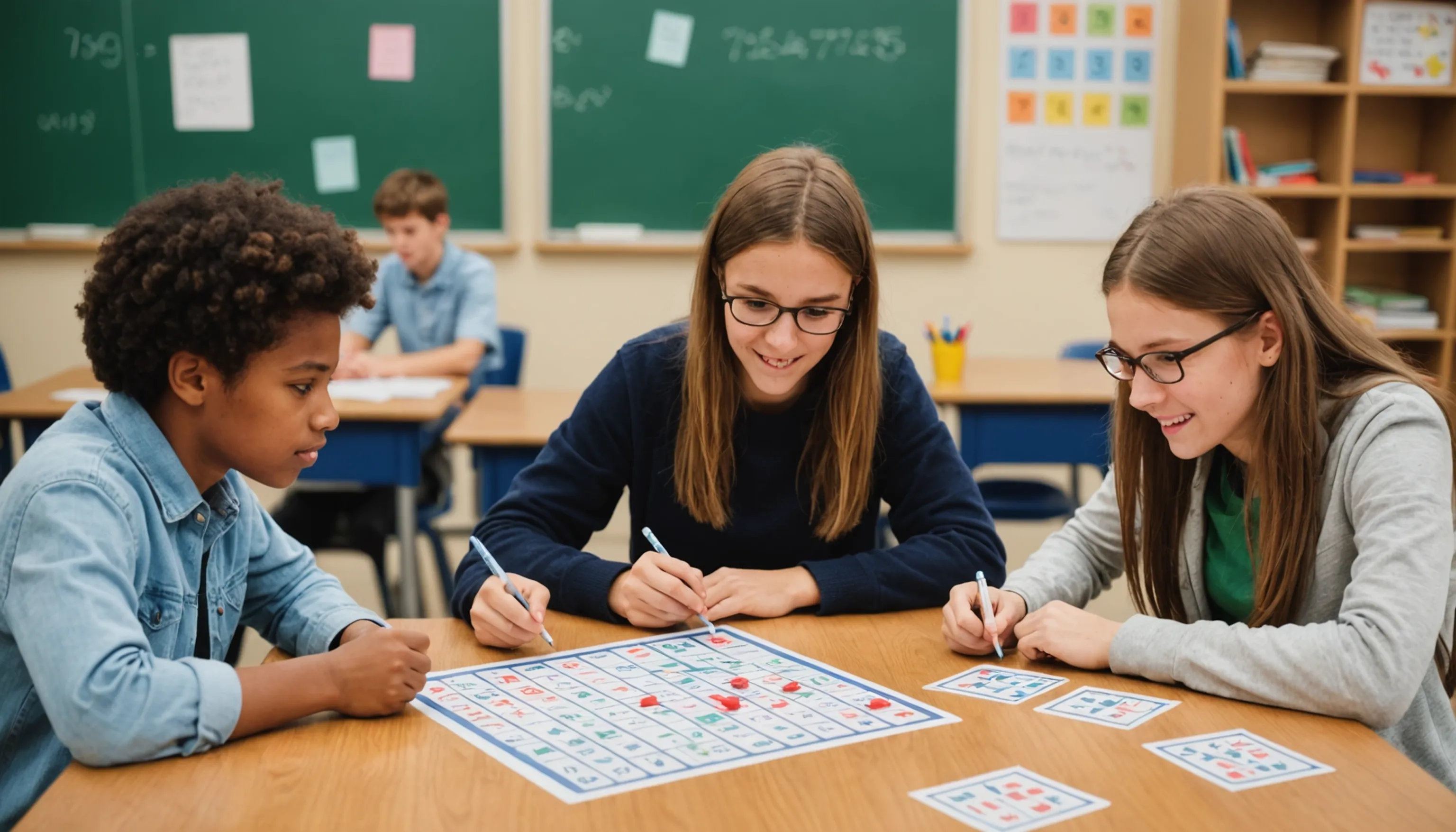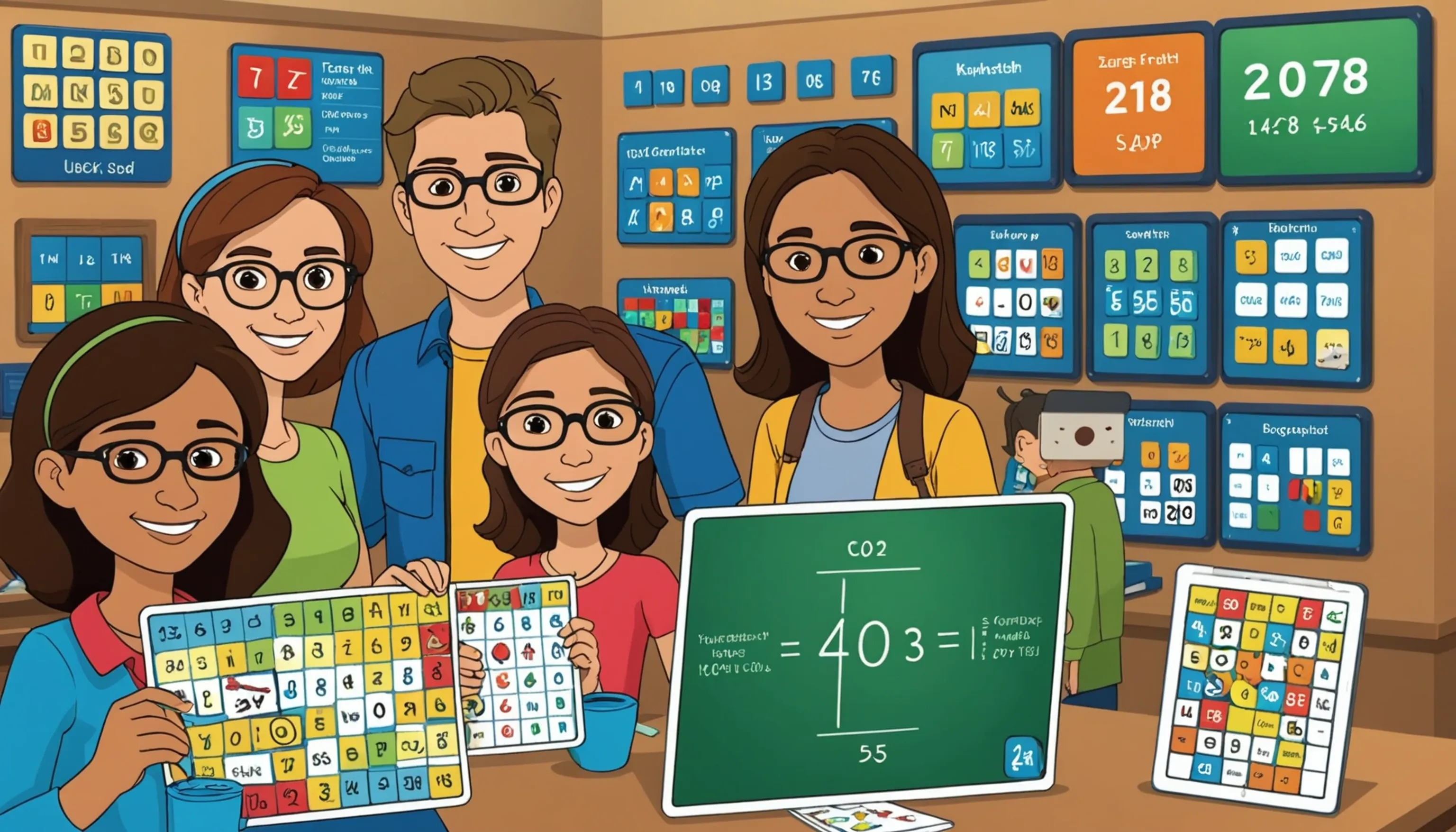5 Math Games for Teenagers
 HvWHenry van Wagenberg
HvWHenry van Wagenberg
5 Fun Math Games for Teenagers
Math can be exciting and engaging for teenagers when presented in a fun way. Here are 5 fun math games that can help make learning enjoyable:
- Math Jeopardy: A competitive game that combines trivia and math challenges, where students can work in teams.
- Math Bingo: This game uses bingo cards filled with math problems to solve, promoting quick thinking.
- Escape Room Math Challenges: These involve solving math problems to unlock clues and escape.
- Math Puzzles and Riddles: Engaging brain teasers that challenge logical thinking.
- Online Math Competitions: Virtual contests that encourage friendly competition while enhancing math skills.
1. Math Jeopardy
Math Jeopardy is an engaging and interactive game that can transform the traditional classroom experience into a lively learning environment. In this game, students are divided into teams and compete to answer math-related questions presented in a quiz format, similar to the popular TV show.
The game is set up with a board that features categories, such as algebra, geometry, or statistics, each with varying point values. Teams take turns selecting a category and a point value, leading to a math question that they must answer correctly to earn points. This structure not only makes learning competitive but also encourages teamwork and collaboration among students.
To make Math Jeopardy even more effective, teachers can customize the questions to fit the curriculum and the current topics being covered in class. This ensures that students are practicing relevant skills while having fun. Additionally, using technology like PowerPoint or online platforms can enhance the experience by providing visual elements and a more dynamic game board.
Moreover, Math Jeopardy can be adapted for different levels of difficulty, making it suitable for various age groups and skill levels. This adaptability allows all students to participate and feel included, regardless of their math proficiency. Ultimately, this game not only reinforces math concepts but also fosters a positive attitude toward learning mathematics.

2. Math Bingo
Math Bingo is a fantastic way to make math practice enjoyable and interactive for teenagers. This game combines the traditional bingo format with math problems, creating an engaging learning experience that promotes quick thinking and problem-solving skills.
To play Math Bingo, teachers or parents can create bingo cards filled with various math problems or answers instead of numbers. Each card should have a unique arrangement of problems to ensure that each game is different. When a problem is called out, players must solve it and mark the corresponding answer on their bingo card. The first player to complete a row, column, or diagonal shouts “Bingo!” and wins the game.
This game can be tailored to different math topics, such as fractions, algebra, or geometry, depending on what the students are currently learning. For instance, if students are working on multiplication, the bingo cards can feature multiplication problems that they must solve to win.
Math Bingo not only reinforces essential math concepts but also encourages friendly competition among students. The game's social aspect fosters collaboration and communication, as players discuss solutions and strategies. Additionally, it can be easily adapted for larger groups or online learning environments by using digital bingo cards.
Overall, Math Bingo offers a fun and effective way to enhance teenagers' math skills while keeping them engaged and motivated.
3. Escape Room Math Challenges
Escape Room Math Challenges are an exciting and immersive way to engage teenagers in math learning. These challenges take the concept of escape rooms—where participants solve puzzles to 'escape'—and integrate math problems into the experience, making learning both fun and interactive.
In an Escape Room Math Challenge, students work in teams to solve a series of math-related puzzles and problems that lead them to unlock clues or codes. Each solved problem brings them closer to 'escaping' the room. This format encourages collaboration, critical thinking, and time management as students race against the clock.
Teachers can create a variety of challenges tailored to different math concepts, such as algebra, geometry, or probability. For example, a challenge might involve solving equations to unlock a box or using geometry to decode a message. By incorporating real-world scenarios, students can see the practical application of math in a fun context.
Moreover, Escape Room Math Challenges can be set up in the classroom or even virtually, making them adaptable to various learning environments. They can also be themed to add an extra layer of excitement, such as a treasure hunt or a mystery investigation.
Overall, these challenges not only enhance students' math skills but also promote teamwork and communication. By combining problem-solving with a thrilling escape room experience, teenagers are more likely to develop a positive attitude toward math.
4. Math Puzzles and Riddles
Math Puzzles and Riddles are a captivating way to stimulate critical thinking and problem-solving skills among teenagers. These brain teasers challenge students to think outside the box while applying their mathematical knowledge in creative ways. Unlike traditional math exercises, puzzles and riddles often require a blend of logic, strategy, and mathematical reasoning, making them both entertaining and educational.
Teachers and parents can introduce a variety of math puzzles, from logic puzzles to word problems and numerical riddles. For instance, a classic riddle might involve figuring out the ages of family members based on clues, while a logic puzzle could challenge students to arrange items according to specific criteria.
Incorporating these puzzles into the learning process can make math feel less intimidating and more enjoyable. They can be used as warm-up activities, homework assignments, or even competitive challenges in the classroom. By working individually or in teams, students not only enhance their math skills but also develop collaboration and communication abilities.
Furthermore, online platforms and apps offer a vast array of math puzzles and riddles, allowing students to practice at their own pace. These resources often gamify the learning process, providing instant feedback and rewards for solving problems correctly.
Overall, Math Puzzles and Riddles serve as an excellent tool to engage teenagers, making math a fun and interactive subject that encourages exploration and discovery.
5. Online Math Competitions
Online Math Competitions have gained popularity as a modern and engaging way for teenagers to enhance their math skills while participating in a friendly, competitive environment. These competitions are accessible from anywhere, making them an excellent option for students who want to challenge themselves beyond the traditional classroom setting.
Many online platforms host math competitions that cater to various age groups and skill levels. Students can compete individually or in teams, tackling a series of math problems that test their understanding of concepts such as algebra, geometry, calculus, and statistics. Some competitions even offer a tournament-style format, where participants advance through rounds based on their performance.
Participating in these competitions not only helps students sharpen their problem-solving skills but also fosters a sense of community among peers who share similar interests in mathematics. They can learn from one another, exchange strategies, and build friendships while competing. Additionally, many online math competitions provide resources, such as practice problems and instructional videos, to help participants prepare effectively.
Moreover, students often receive recognition for their achievements, whether through certificates, prizes, or even scholarships. This acknowledgment can boost their confidence and motivate them to pursue further studies in mathematics or related fields.
Overall, Online Math Competitions are an excellent way to cultivate a passion for math in teenagers, encouraging them to embrace challenges and develop their skills in a fun and supportive atmosphere.
